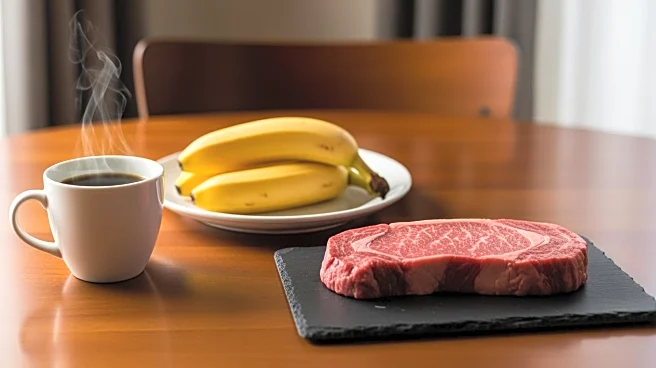What's Happening?
President Trump has announced the exemption of key agricultural imports, including coffee, cocoa, bananas, and certain beef products, from higher tariff rates. This decision comes amid political backlash
over high grocery store prices, exacerbated by Trump's tariffs. The exemptions also cover fruits like tomatoes, avocados, coconuts, oranges, and pineapples, as well as black and green tea and spices. The move represents a reversal from Trump's previous stance that tariffs protect U.S. businesses and workers. The exemptions follow trade agreements with Latin American countries, aiming to moderate grocery price increases.
Why It's Important?
The tariff reductions are intended to alleviate pressure on household budgets amid high inflation. By lowering tariffs on goods not produced in the U.S., the administration aims to reduce grocery prices. This policy shift may impact U.S. trade relations and domestic industries reliant on imported goods. The exemptions could help stabilize food prices, although global supply shortages remain a factor. The decision reflects a political response to voter dissatisfaction with economic conditions, as evidenced by recent election outcomes. The move may influence future trade strategies and economic policies.
What's Next?
The administration's decision may face scrutiny from political leaders and industry groups. The impact on consumer prices and trade relations will be closely monitored. The president's proposal to use tariff revenue for direct payments to Americans could face opposition and raise questions about its feasibility. The administration's trade agreements with Latin American countries may influence future tariff decisions and economic strategies. Stakeholders will likely continue to assess the effects of these changes on the economy and consumer sentiment.










